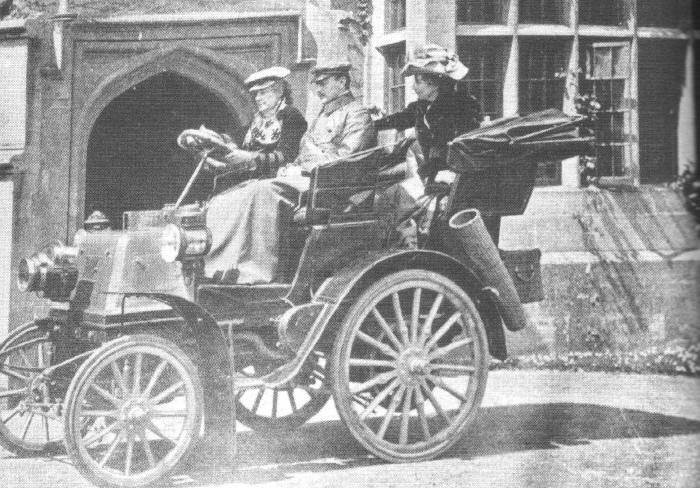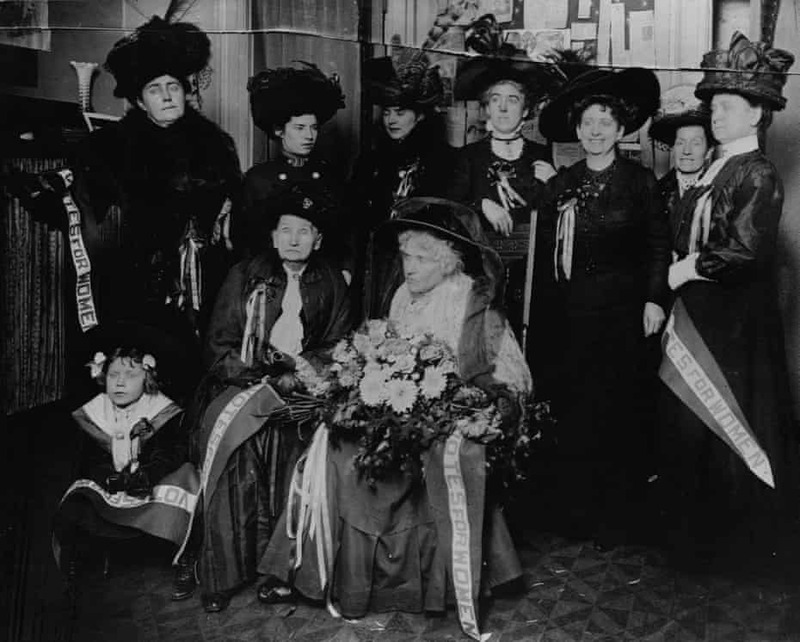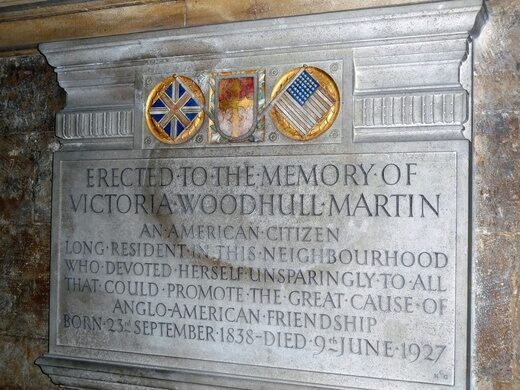Life Post-Legacy
In 1876, Woodhull and Claflin’s Weekly was forced to fold. Left with no money, Victoria Woodhull and her sister Tennessee Claflin moved to England in 1877 after Vanderbilt died.
The sisters reinvented themselves as aristocrats and patrons of the arts after remarrying into wealthy families—
Woodhull’s third husband, John Biddulph Martin, was an Oxford-educated wealthy banker. She spent the latter half of her life running a newspaper and preserving her marital estate. Woodhull was interested in automobiles and became the first woman to own a car in England. She spent her later years donating money and services to townspeople around the estate and volunteering with the Red Cross during World War I. (Felsenthal for Politico Magazine, 2015)
She founded an agricultural school that was moderately successful and even traveled back to the United States in 1892 to run for U.S. President again. (Greenspan for History.com, 2018)
History has excluded Woodhull’s efforts from common narrative primarily due to the backlash and harsh criticism she received from notable individuals—
Harriet Beecher Stowe of “Uncle Tom’s Cabin” was a very harsh critic of Woodhull after the Beecher-Tilton scandal— labeling her an “impudent witch” and a “vile jailbird.” Similarly, leaders of the women’s suffrage movement like Susan B. Anthony and Elizabeth Cady Stanton turned against Woodhull after her presidential run, shaming her for her political ambition and “love of the limelight” (Greenspan for History.com, 2018).
Woodhull was no longer invited to speak at suffrage conventions.
Suan B. Anthony went as far as to tell British suffrage leaders not to meet with her and is quoted referring to the Claflin sisters as “regarded as lewd and indecent,”. To top it off, Anthony, Stanton, and Maltilda Joslyn Gage completely left Victoria Woodhull out of the comprehensive history of the women’s suffrage movement published in the 1880s. (Greenspan for History.com, 2018)
Victoria Woodhull’s efforts to become the first female president may not have been a success, and her reputation may have been slandered by uptight suffragists and afraid hypocritical socialites alike all of the truth Woodhull was so ready, willing, and able to tell anyone who would listen. Victoria Woodhull had a massive impact on a number of key issues the majority of our American society does not even think twice about today. She fought to change the landscape in which women were seen politically, culturally, socially, economically, within their home lives with their spouses, amongst business partners, and simply as a valuable member of society as a whole. If not for the contributions of Victoria Woodhull, the arduous path to women’s suffrage could’ve taken much, much longer.
Happily, before she died on June 9th, 1927 at the age of 88, Woodhull was able to see women gain the right to vote in the United States and Great Britain. (NPS, 2018)


